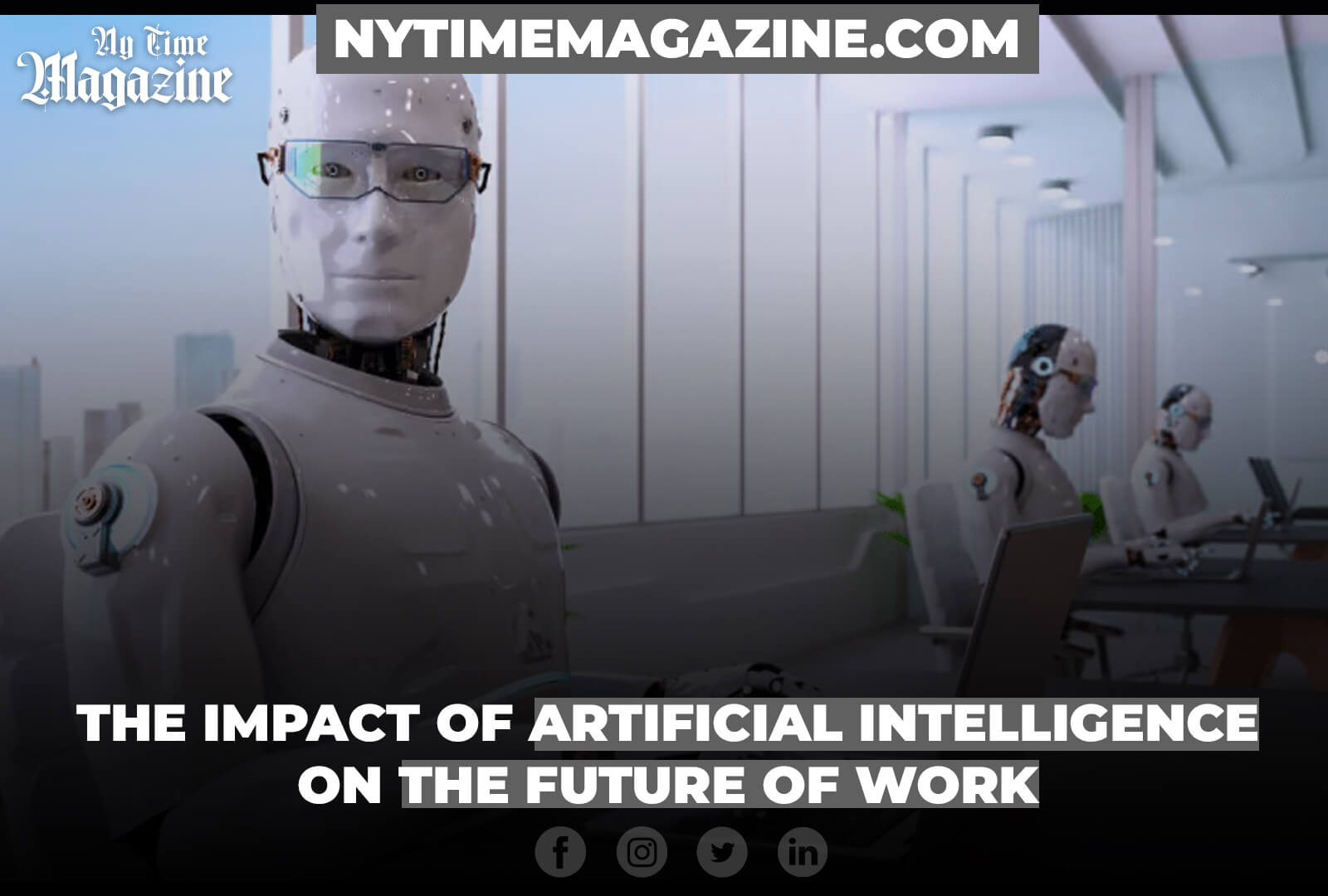Contents
Introduction Impact of Artificial Intelligence:
In the digital age, artificial intelligence (AI) is not just a buzzword but a transformative force reshaping the landscape of work. As we stand at the crossroads of human ingenuity and technological advancement, it’s crucial to explore how AI is revolutionizing the way we work. This exploration delves into the profound impact AI is having on industries, job roles, and the very essence of human productivity. Join us on this journey as we unravel the complexities and opportunities that AI brings to the future of work.
AI in Industries:
AI is not confined to the realm of science fiction; it’s a practical tool driving efficiency across diverse industries. In healthcare, AI aids in diagnosing diseases and personalizing patient care. In manufacturing, it optimizes production lines, ensuring precision and minimizing errors. The financial sector benefits from AI’s predictive analytics, while agriculture embraces AI-driven smart farming techniques. The integration of AI into these sectors is not just streamlining processes but also enhancing the quality of services and products.
Job Roles in the Age of AI:
With the rise of AI, job roles are undergoing a paradigm shift. Repetitive tasks susceptible to automation are giving way to creative, strategic, and empathetic roles that AI cannot replicate. The demand for data scientists, AI specialists, and machine learning engineers is soaring. Furthermore, AI is augmenting human potential. In healthcare, AI supports doctors in complex surgeries, and in customer service, chatbots provide instant assistance. Instead of replacing jobs, AI is redefining them, making them more intellectually stimulating and human-centric.
Challenges and Ethical Considerations:
However, this transformative journey is not without challenges. The fear of job displacement looms large, requiring reskilling and upskilling efforts. Ethical concerns regarding data privacy, bias in algorithms, and AI decision-making processes demand vigilant attention. Striking a balance between technological advancement and ethical considerations is essential to ensure a future where AI benefits all of humanity.
Collaboration between Humans and AI:
The future of work isn’t about humans versus machines; it’s about collaboration. AI augments human capabilities, providing tools to analyze vast datasets, predict trends, and automate mundane tasks. Humans, with their creativity, critical thinking, and emotional intelligence, complement AI. This synergy heralds an era where tasks are divided based on strengths, creating a harmonious partnership between human intuition and AI’s analytical prowess.
Conclusion:
As we navigate this artificial intelligence AI-driven future, understanding its impact on work is paramount. It’s a future where innovation thrives, and human potential is unleashed. Embracing AI means embracing change, learning new skills, and adapting to evolving job landscapes. By fostering collaboration, addressing ethical concerns, and preparing the workforce, we can harness the power of AI to create a future where work is not just productive but profoundly meaningful. In this era of transformation, the key lies in our ability to embrace AI as a tool that empowers us to achieve unprecedented heights in the world of work.



